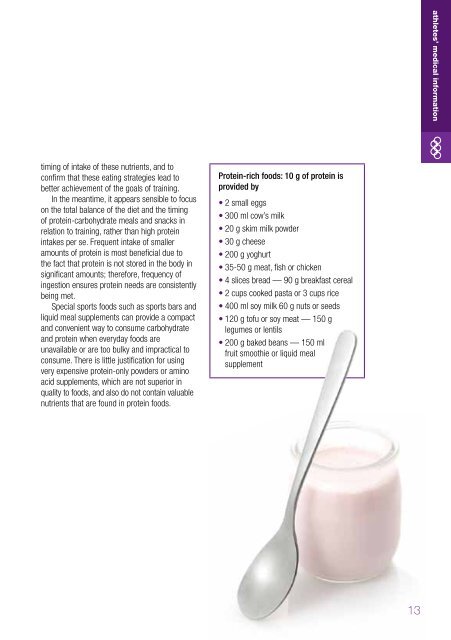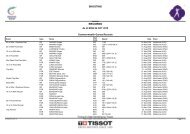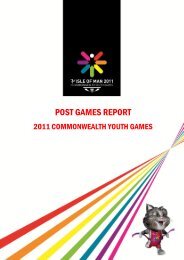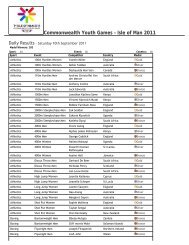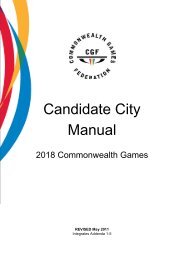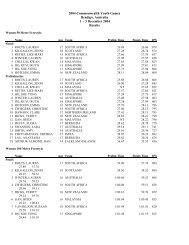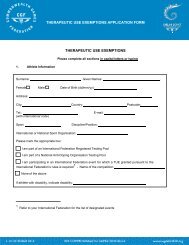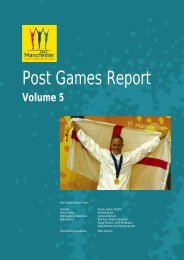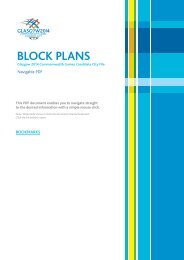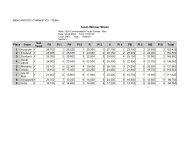Nutrition for Athletes - Commonwealth Games Federation
Nutrition for Athletes - Commonwealth Games Federation
Nutrition for Athletes - Commonwealth Games Federation
Create successful ePaper yourself
Turn your PDF publications into a flip-book with our unique Google optimized e-Paper software.
athletes’ medical in<strong>for</strong>mationtiming of intake of these nutrients, and toconfirm that these eating strategies lead tobetter achievement of the goals of training.In the meantime, it appears sensible to focuson the total balance of the diet and the timingof protein-carbohydrate meals and snacks inrelation to training, rather than high proteinintakes per se. Frequent intake of smalleramounts of protein is most beneficial due tothe fact that protein is not stored in the body insignificant amounts; there<strong>for</strong>e, frequency ofingestion ensures protein needs are consistentlybeing met.Special sports foods such as sports bars andliquid meal supplements can provide a compactand convenient way to consume carbohydrateand protein when everyday foods areunavailable or are too bulky and impractical toconsume. There is little justification <strong>for</strong> usingvery expensive protein-only powders or aminoacid supplements, which are not superior inquality to foods, and also do not contain valuablenutrients that are found in protein foods.Protein-rich foods: 10 g of protein isprovided by• 2 small eggs• 300 ml cow’s milk• 20 g skim milk powder• 30 g cheese• 200 g yoghurt• 35-50 g meat, fish or chicken• 4 slices bread — 90 g breakfast cereal• 2 cups cooked pasta or 3 cups rice• 400 ml soy milk 60 g nuts or seeds• 120 g tofu or soy meat — 150 glegumes or lentils• 200 g baked beans — 150 mlfruit smoothie or liquid mealsupplement13


